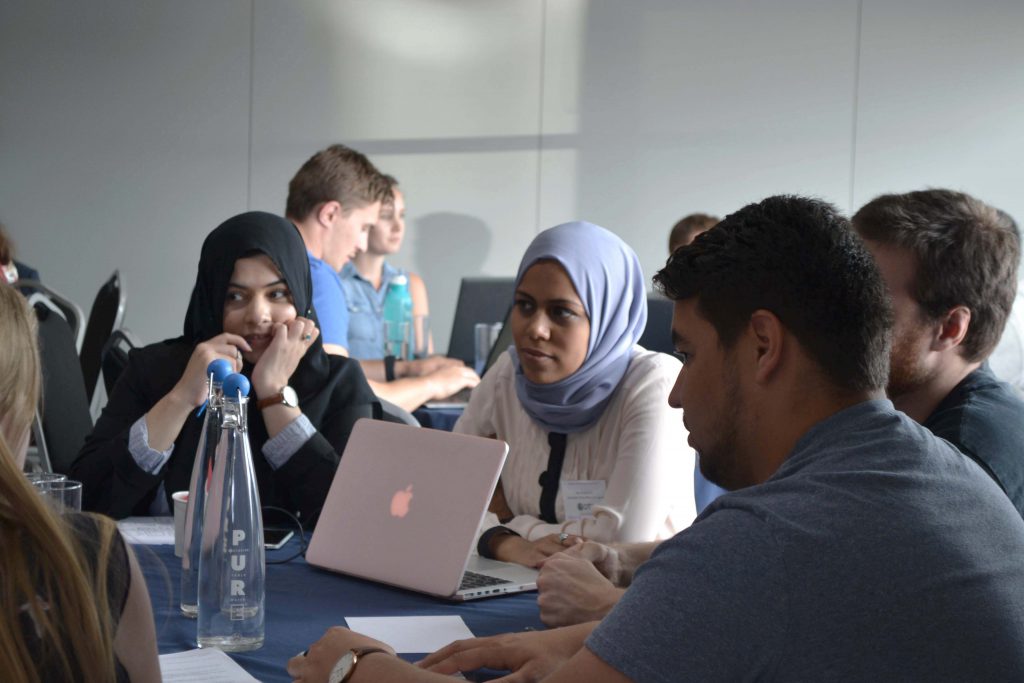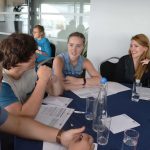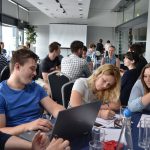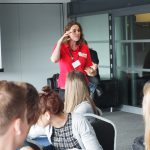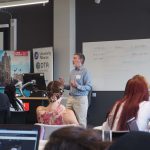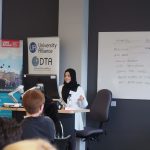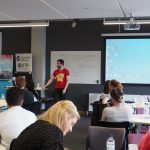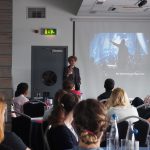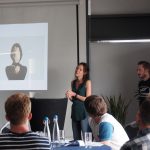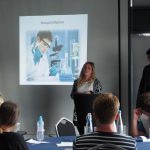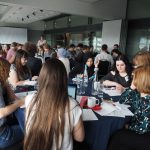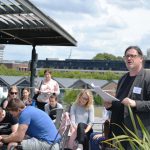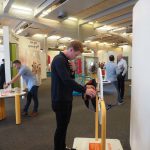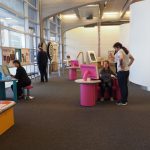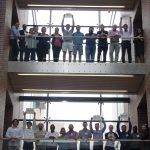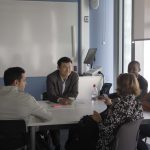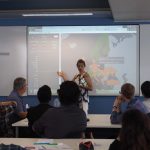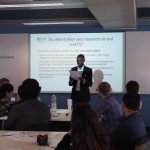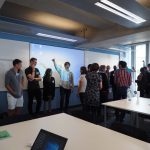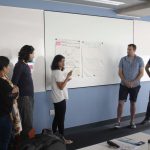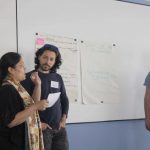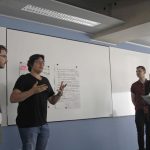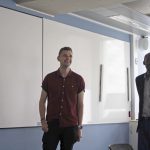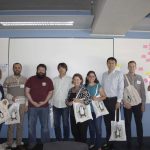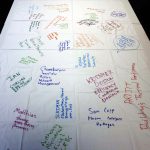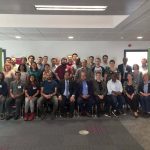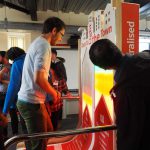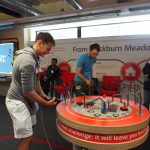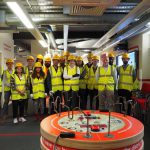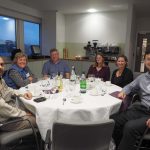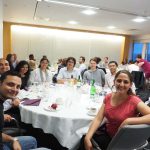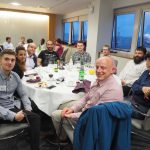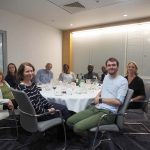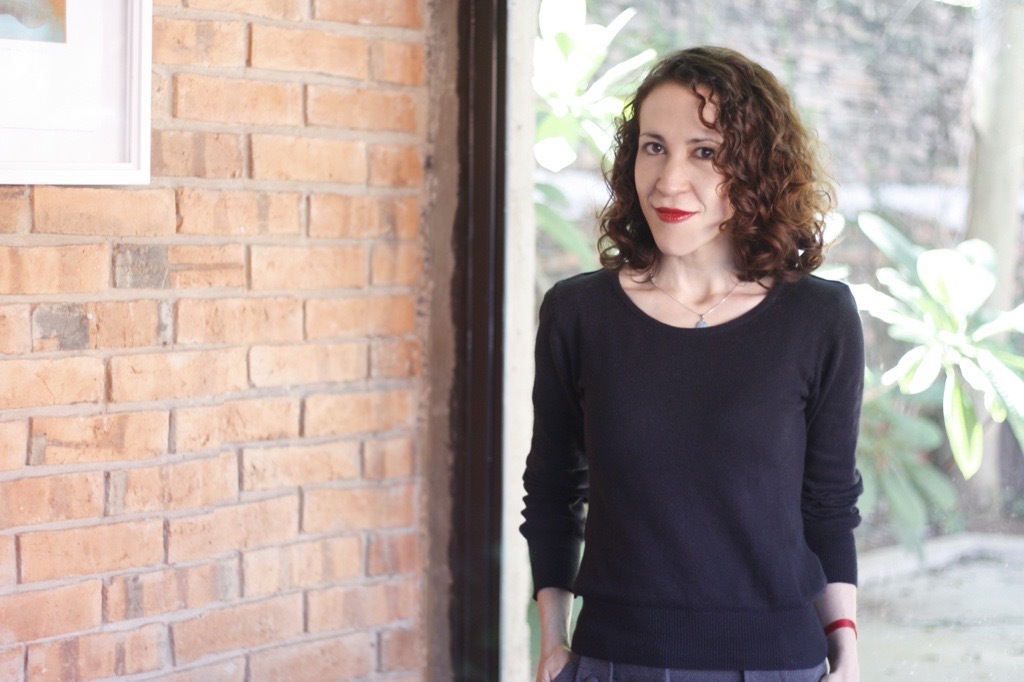PhD students from the UK and Australia recently gathered at our annual Doctoral Training Alliance (DTA) summer schools. The events give research students the opportunity to bond as a distinct group and work collaboratively through a series of workshops, talks and site visits over the course of three days.
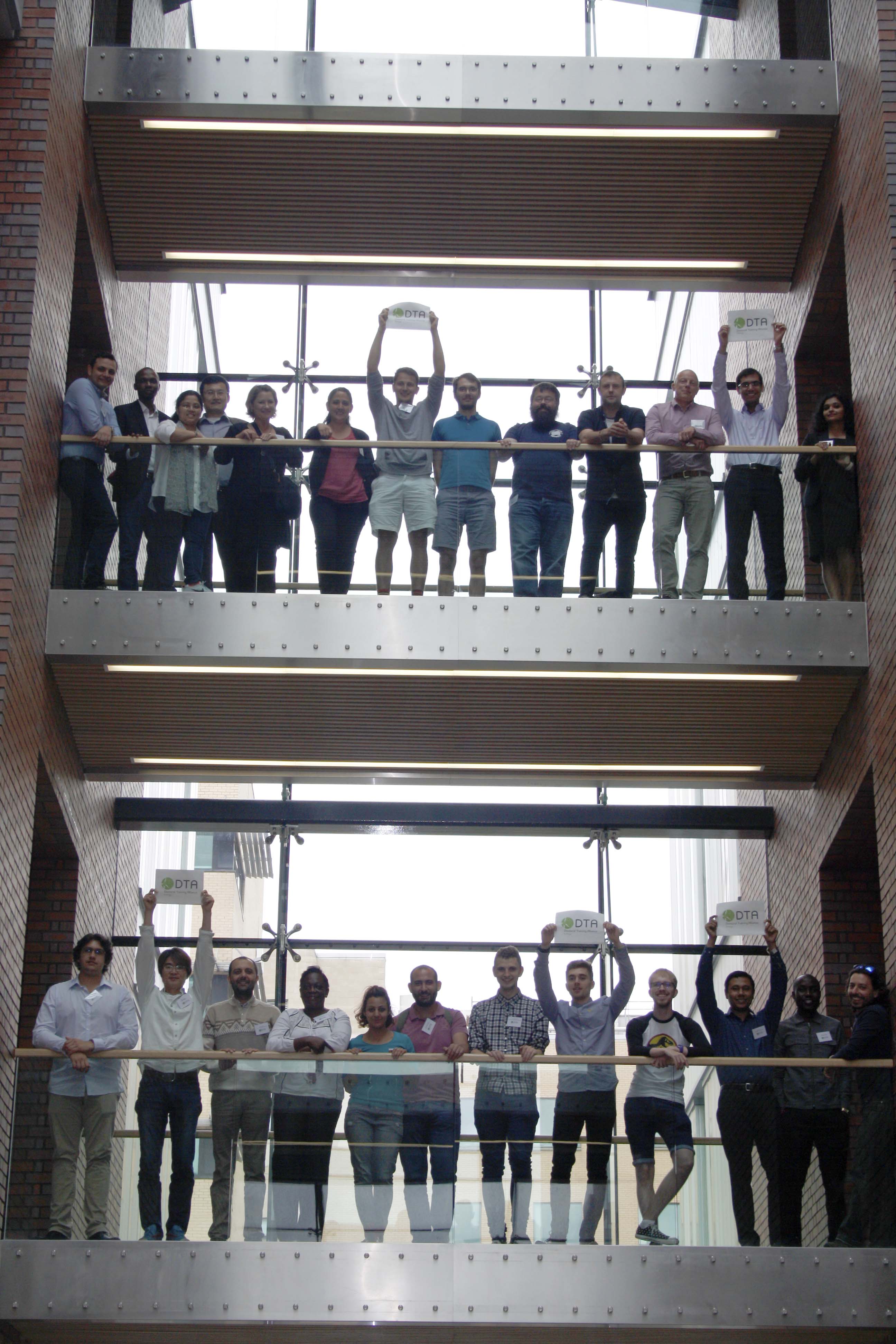
DTA Energy students at Sheffiled Hallam University
DTA Energy students, joined by researchers from the Australian Technology Network, travelled to Sheffield where they visited Drax, a former coal-fired power station, which is currently upgrading to biomass technology. They also gained access to EON Blackburn Meadows, a renewable energy CHP (combined heat and power) plant, where they learned about energy efficient solutions to fuel supply.
Meanwhile, students from DTA Applied Biosciences for Health were based in Bristol where they explored one of the UK’s biggest interactive science centres, At-Bristol, and were led on a walking tour of world-leading facilities at UWE Bristol. They also participated in a workshop facilitated by the Rising Ape Collective, an events management company set up by MsC Science Communications graduates.
Access to innovative industries and facilities provide our students with professional insight, linking their research with global challenges so it can achieve the maximum impact in the real world. The DTA summer schools equip researchers with the professional expertise to produce world-changing research and develop successful careers after completing their doctorates.
Based at Sheffield Hallam University, DTA Energy students heard from an expert panel on career pathways, learning how their research could lead to a successful career in industry or government, and the skills required to do so. The DTA summer school for Energy researchers also enabled PhD candidates to work together in groups on solutions to real-world energy challenges – the diverse backgrounds of students from across the globe provided a platform for a wide range of different perspectives.
At UWE Bristol, DTA Applied Biosciences for Health researchers learned how to develop their academic profile into a brand to become key influencers, taking advantage of online media platforms such as The Conversation to communicate their research. They also worked together on developing social media strategies to share their work, ways to make their research accessible to non-specialists using images, engaging writing techniques and alternative presentation styles such as PechaKucha.
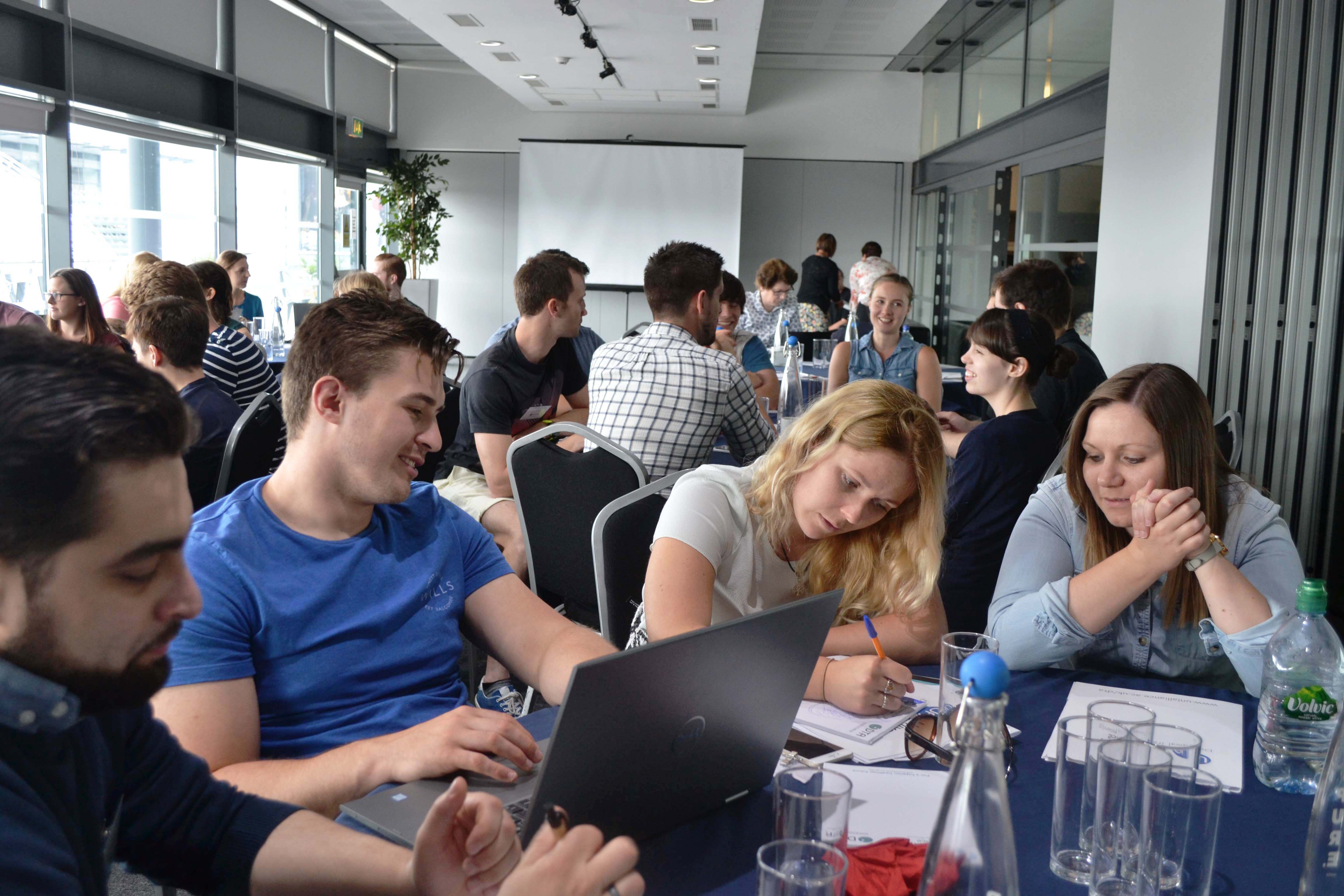
DTA Applied Biosciences for Health students at UWE Bristol
The professional and skills-based training provided at the DTA summer schools is key to the programme’s success in producing highly-employable researchers to help the UK compete globally as a knowledge economy. DTA students benefit from Alliance universities’ combined network of industry partners to improve the quality of their research for real-world impact.
Both summer schools also gave researchers the chance to share the progress of their group projects since they last met in Spring. The students’ projects are providing new approaches to research collaboration, and increasing exposure to their research for maximum impact. Read more about DTA students’ projects here, and you can find out more about the programmes on the DTA website.
Take a look below at some photos from the DTA summer schools:

